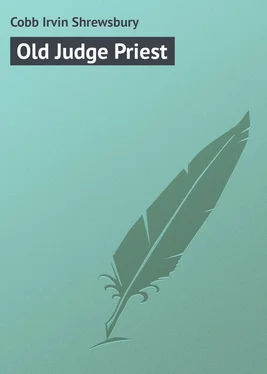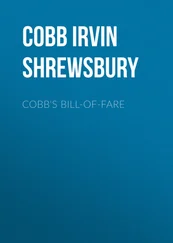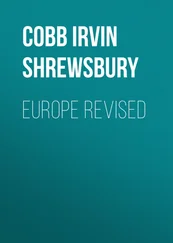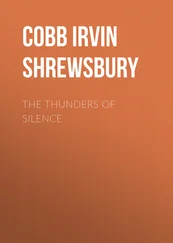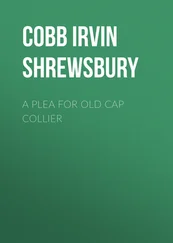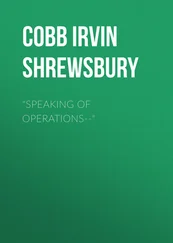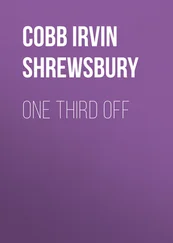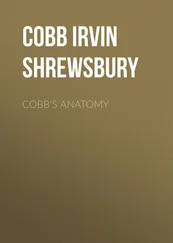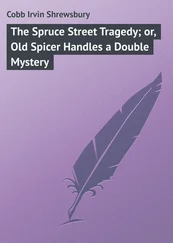Irvin Cobb - Old Judge Priest
Здесь есть возможность читать онлайн «Irvin Cobb - Old Judge Priest» — ознакомительный отрывок электронной книги совершенно бесплатно, а после прочтения отрывка купить полную версию. В некоторых случаях можно слушать аудио, скачать через торрент в формате fb2 и присутствует краткое содержание. Жанр: foreign_prose, на английском языке. Описание произведения, (предисловие) а так же отзывы посетителей доступны на портале библиотеки ЛибКат.
- Название:Old Judge Priest
- Автор:
- Жанр:
- Год:неизвестен
- ISBN:нет данных
- Рейтинг книги:5 / 5. Голосов: 1
-
Избранное:Добавить в избранное
- Отзывы:
-
Ваша оценка:
- 100
- 1
- 2
- 3
- 4
- 5
Old Judge Priest: краткое содержание, описание и аннотация
Предлагаем к чтению аннотацию, описание, краткое содержание или предисловие (зависит от того, что написал сам автор книги «Old Judge Priest»). Если вы не нашли необходимую информацию о книге — напишите в комментариях, мы постараемся отыскать её.
Old Judge Priest — читать онлайн ознакомительный отрывок
Ниже представлен текст книги, разбитый по страницам. Система сохранения места последней прочитанной страницы, позволяет с удобством читать онлайн бесплатно книгу «Old Judge Priest», без необходимости каждый раз заново искать на чём Вы остановились. Поставьте закладку, и сможете в любой момент перейти на страницу, на которой закончили чтение.
Интервал:
Закладка:
With his right hand he fumbled in his breast pocket and brought out two time-yellowed slips of paper and held them high aloft, clenched and crumpled up in a quivering fist.
“One of these papers is my honourable discharge. The other is a letter that the old colonel of my regiment wrote to me with his own hand two months before he died.”
He halted and his eyes, burning like red coals under the thick brows, ranged the faces that looked up into his. His own face worked. When he spoke again he spoke as a prisoner at the bar might speak, making a last desperate appeal to the jury trying him for his life:
“You men have all been soldiers. I ask you this now, as a soldier standing among soldiers – I ask you if my record of three years of hard service and hard fighting can square me up for the one slip I made when I was hardly more than a boy in years? I ask you that?”
With one voice, then, the jury answered. Its verdict was acquittal – and not alone acquittal but vindication. Had you been listening outside you would have sworn that fifty men and not thirteen were yelling at the tops of their lungs, beating on the table with all the might in their arms.
The old man stood for a minute longer. Then suddenly all the rigidity seemed to go out of him. He fell into his chair and put his face in his two cupped hands. The papers he had brandished over his head slipped out of his fingers and dropped on the tablecloth. One of them – a flat, unfolded slip – settled just in front of Doctor Lake. Governed partly by an instinct operating automatically, partly to hide his own emotions, which had been roused to a considerable degree, Doctor Lake bent and spelled out the first few words. His head came up with a jerk of profound surprise and gratification.
“Why, this is signed by John B. Gordon him-self!” he snorted. He twisted about, reaching out for Judge Priest. “Billy! Billy Priest! Why, look here! Why, this man’s no Yankee! Not by a dam’ sight he’s not! Why, he served with a Georgia regiment! Why – ”
But Judge Priest never heard a word of what Doctor Lake was saying. His old blue eyes stared at the stranger’s left hand. On the back of that hand, standing out upon the corded tendons and the wrinkled brown skin, blazed a red spot, shaped like a dumb-bell, a birthmark of most unusual pattern.
Judge Priest stared and stared; and as he stared a memory that was nearly as old as he was crept out from beneath a neglected convolution in the back part of his brain, and grew and spread until it filled his amazed, startled, scarce-believing mind. So it was no wonder he did not hear Doctor Lake; no wonder he did not see black Tobe Emery stealing up behind him, with popped eyes likewise fixed on that red dumb-bell-shaped mark.
No; Judge Priest did not hear a word. As Doctor Lake faced about the other way to spread his wonderful discovery down the table and across it, the judge bent forward and touched the fourteenth guest on the shoulder very gently.
“Pardner,” he asked, apparently apropos of nothing that had happened since the dinner started – “Pardner, when was the first time you heard about this here meetin’ of Company B – the first time?”
Through the interlaced fingers of the other the answer came haltingly:
“I read about it – in a Chicago Sunday paper – three weeks ago.”
“But you knew before that there was a Company B down here in this town?”
Without raising his head or baring his face, the other nodded. Judge Priest overturned his coffee cup as he got to his feet, but took no heed of the resultant damage to the cloth on the table and the fronts of his white trouser legs.
“Boys,” he cried out so shrilly, so eagerly, so joyously, that they all jumped, “when you foller after Holy Writ you can’t never go fur wrong. You’re liable to breed a miracle. A while ago we took a lesson from the Parable of the Rich Man that give a dinner; and – lo and behold! – another parable and a better parable – yes, the sweetest parable of ‘em all – has come to pass and been repeated here ‘mongst us without our ever knowin’ it or even suspectin’ it. The Prodigal Son didn’t enjoy the advantage of havin’ a Chicago Sunday paper to read, but in due season he came back home – that other Prodigal did; and it stands written in the text that he was furgiven, and that a feast was made fur him in the house of his fathers.”
His tone changed to one of earnest demand: “Lycurgus Reese, finish the roll call of this company – finish it right now, this minute – the way it oughter be finished!”
“Why, Judge Priest,” said Professor Reese, still in the dark and filled with wonderment, “it is already finished!”
As though angered almost beyond control, the judge snapped back:
“It ain’t finished, neither. It ain’t been rightly finished from the very beginnin’ of these dinners. It ain’t finished till you call the very last name that’s on that list.”
“But, Judge – ”
“But nothin’! You call that last name, Ly-curgus Reese; and you be almighty quick about it!”
There was no need for the old professor, thus roughly bidden, to haul out his manuscript. He knew well enough the name, though wittingly it had not passed his lips for forty years or more. So he spoke it out:
“Sylvester B. Washburn!”
The man they had called Watts raised in his place and dropped his clenched hands to his sides, and threw off the stoop that was in his shoulders. He lifted his wetted eyes to the cracked, stained ceiling above. He peered past plaster and rafter and roof, and through a rift in the skies above he feasted his famished vision on a delectable land which others might not see. And then, beholding on his face that look of one who is confessed and shriven, purified and atoned for, the scales fell away from their own eyes and they marvelled – not that they knew him now, but that they had not known him before now. And for a moment or two there was not a sound to be heard.
“Sylvester B. Washburn!” repeated Professor Reese.
And the prodigal answered:
“Here!”
III. JUDGE PRIEST COMES BACK
FROM time to time persons of an inquiring turn of mind have been moved audibly to speculate – I might even say to ponder – regarding the enigma underlying the continued presence in the halls of our National Congress of the Honourable Dabney Prentiss. All were as one in agreeing that he had a magnificent delivery, but in this same connection it has repeatedly been pointed out that he so rarely had anything to deliver. Some few among this puzzled contingent, knowing, as they did, the habits and customs of the people down in our country, could understand that in a corner of the land where the gift of tongue is still highly revered and the golden chimings of a full-jewelled throat are not yet entirely lost in the click of cash registers and the whir of looms, how the Honourable Dabney within his limitations might have been oratorically conspicuous and politically useful, not alone to himself but to others. But as a constructive statesman sent up to Washington, District of Columbia, and there engaged in shaping loose ends of legislation into the welded and the tempered law, they could not seem to see him at all. It was such a one, an editorial writer upon a metropolitan daily, who once referred to Representative Prentiss as The Human Voice. The title stuck, a fact patently testifying to its aptness. That which follows here in this chapter is an attempt to explain the mystery of this gentleman’s elevation to the high places which he recently adorned.
To go back to the very start of things we must first review briefly the case of old Mr. Lysander John Curd, even though he be but an incidental figure in the narrative. He was born to be incidental, I reckon, heredity, breeding and the chance of life all conspiring together to fit him for that inconsequential rôle. He was born to be a background. The one thing he ever did in all his span on earth to bring him for a moment into the front of the picture was that, having reached middle age, he took unto himself a young wife. But since he kept her only long enough to lose her, even this circumstance did not serve to focus the attention of the community upon his uncoloured personality for any considerable period of time.
Читать дальшеИнтервал:
Закладка:
Похожие книги на «Old Judge Priest»
Представляем Вашему вниманию похожие книги на «Old Judge Priest» списком для выбора. Мы отобрали схожую по названию и смыслу литературу в надежде предоставить читателям больше вариантов отыскать новые, интересные, ещё непрочитанные произведения.
Обсуждение, отзывы о книге «Old Judge Priest» и просто собственные мнения читателей. Оставьте ваши комментарии, напишите, что Вы думаете о произведении, его смысле или главных героях. Укажите что конкретно понравилось, а что нет, и почему Вы так считаете.
